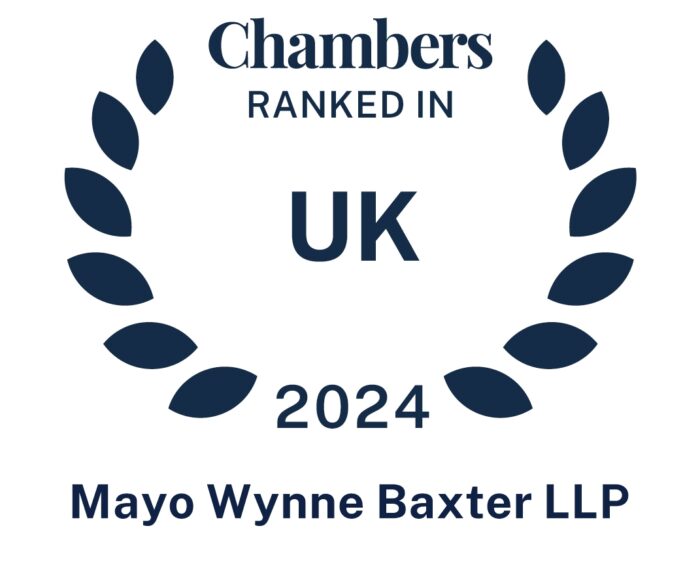
Finances and Divorce Financial Settlements
Our lawyers will help you organise your divorce financial settlement, offering expert divorce, mediation and separation advice.
Jump to section...
Finances & divorce financial settlements
When relationships change, inevitably, do your finances. It is fair to say that the complicated part of the divorce or separation process is not legally ending the marriage, but dealing with the issues surrounding it involving children or finances. Our lawyers will help you organise your divorce financial settlement, offering expert divorce, mediation and separation advice.
Our specialist divorce and separation agreement solicitors look after clients across Sussex, with offices in Brighton, Chichester, Crawley, Eastbourne, East Grinstead, Lewes, Peacehaven, Seaford and Storrington, as well as London.
What to consider in a divorce financial settlement
When you divorce, you will also want to reach a financial resolution in relation to the breakdown of your marriage.
The aim of a divorce settlement is to divide the marital assets and resources fairly. It will enable you to move forward independently, while also being able to meet your income and housing needs for you and any children.
Whatever the extent of your wealth, you will need an expert to advise you on what you are entitled to and how to protect your interests. If a divorce financial order is not made and approved by the court, you may leave yourself open to a claim in the future. This is particularly important if you later inherit or come into a large sum of money. Divorce and inheritance can be a particularly thorny issue.
The court considers various matters when looking at what orders should be made to divide marital assets. It takes into account all the circumstances of a case, giving first consideration to the welfare of any children under the age of 18.
In particular, the court pays regard to the following:
- The income, earning capacity, property and other financial resources which each spouse has or is likely to have in the foreseeable future. This includes any increase in earning capacity which the court believes is reasonable for a person to take steps to acquire.
- The financial needs, obligations and responsibilities which each spouse has or is likely to have in the foreseeable future.
- The standard of living enjoyed by the family before the breakdown of the marriage.
- The ages of each spouse and the duration of the marriage.
- Any physical and mental disabilities of each spouse.
- Contributions which each spouse has made or is likely to make in the foreseeable future to the welfare of the family, including by looking after the home or caring for the family.
- The conduct of each spouse if the court believes the conduct is such that it would be wrong to disregard it.
- The value to each spouse of any benefit which one partner will lose access to because of the divorce. This is most commonly to do with pension provision.
These are known as the “section 25 factors”.
How can I reach a financial settlement?
There are a number of ways of reaching a divorce financial settlement, including direct discussions between you and your partner, mediation, collaborative law, solicitor-led negotiations and, where it is not possible to reach an agreement by consent, an application to the court.
Some may think that applying to the court is a hostile approach, but that is not always the case. You might need to do this to secure a timetable for resolution. It does not stop you from working towards achieving a financial settlement by agreement.
Our solicitors have experience of all types of divorce settlements, from multi-million pound agreements involving high-net-worth individuals, to cases where the assets are more limited. We are accustomed to cases where difficult decisions need to be made.
Our divorce settlement expertise
At Mayo Wynne Baxter, we have expertise in making urgent applications to prevent an asset being disposed of. We work closely with other skilled professionals to ensure you have the correct information you need to reach a financial settlement that is right for your individual circumstances.
Our highly skilled solicitors will ensure your future needs are at the forefront of negotiations, whichever process you choose.
Sometimes people agree between themselves on how to divide assets, but need help to draft the required Consent Order and accompanying documents to be approved by the court. In these
circumstances, we can assist with drafting these documents so you can be sure your agreement is accurately recorded and legally binding.
Separation agreements
If you decide to separate, but do not want to divorce or dissolve your civil partnership right away, you can create a separation agreement with your former partner or spouse to agree on a number of arrangements, such as your finances. You may also wish to do this if you have been married or in a civil partnership for less than one year and cannot yet divorce or dissolve your civil partnership.
This can cover a range of areas, such as:
- Agreeing to live apart and who will pay the mortgage or rent, and household bills
- Who will live in the family home, and/or what should happen if it is sold
- What should happen to your finances and financial assets, including any debts you hold such as loans or overdrafts and savings or investments
- Financial support or maintenance payments
- What to do with items of property, especially those bought together, like cars or items of furniture
- Child and childcare arrangements including child maintenance payments, who children should live with and parental access
It is important to note that separation agreements are not legally binding if you do decide to proceed to divorce or dissolution. Your former spouse or civil partner might therefore not want to stick to something you agreed to if this happens. However judges will usually take into account a separation agreement during the divorce or dissolution process if it has been drafted by a solicitor, if both of your financial situations remain the same and that you can show you both knew what you were agreeing to at the time when seeking legal advice.
It is generally advisable for separation agreements to be reviewed if you decide to go ahead with divorce or dissolution proceedings, with a view to having a consent order prepared in terms similar to those of the separation agreement.
Contact us
If you need our help with your divorce financial settlement or separation agreement, contact our divorce law team.
Call us today
Or request a call back from a member of our team
Meet our team
Our other finances & divorce financial settlements services
Why choose Mayo Wynne Baxter
We are a family law team that prioritises client care and providing expert, bespoke legal advice on all family law issues.
- Personalised and compassionate approach
- Specialist team of family law solicitors
- Strong focus on client satisfaction and accessibility
- We provide personalised advice and support throughout the whole legal process

Our Memberships and Awards
Our Latest News
Our specialist team are here to help you and guide you through the legal process. We pride ourselves on providing exceptional service from outstanding people.
If you would like to speak to a member of our team, please fill out the enquiry form. We will aim to reply to your query within 4 business hours.
Need to speak to someone sooner?
Call us: 0800 84 84 101
What to expect when you contact us
- Once you have completed the contact form or called us, our client service team will call you back, to ask a few questions including your preferred method of contact. This information is then passed directly to the Legal Adviser who will be working for you. Once you are happy to proceed we will gather all the relevant information and your file will be opened almost immediately so we can start work.
- A member of the Client Service Team will keep in contact with you on a regular basis throughout your transaction, to make sure you and them are satisfied with the progress of your matter. There is no additional charge to you for their involvement.
- We are here to assist you and ensure everything proceeds as smoothly as possible. You will have direct contact details for the client service team, who you can contact at any point during your matter.
Our aim is to make the process as easy and uncomplicated as possible for you.













